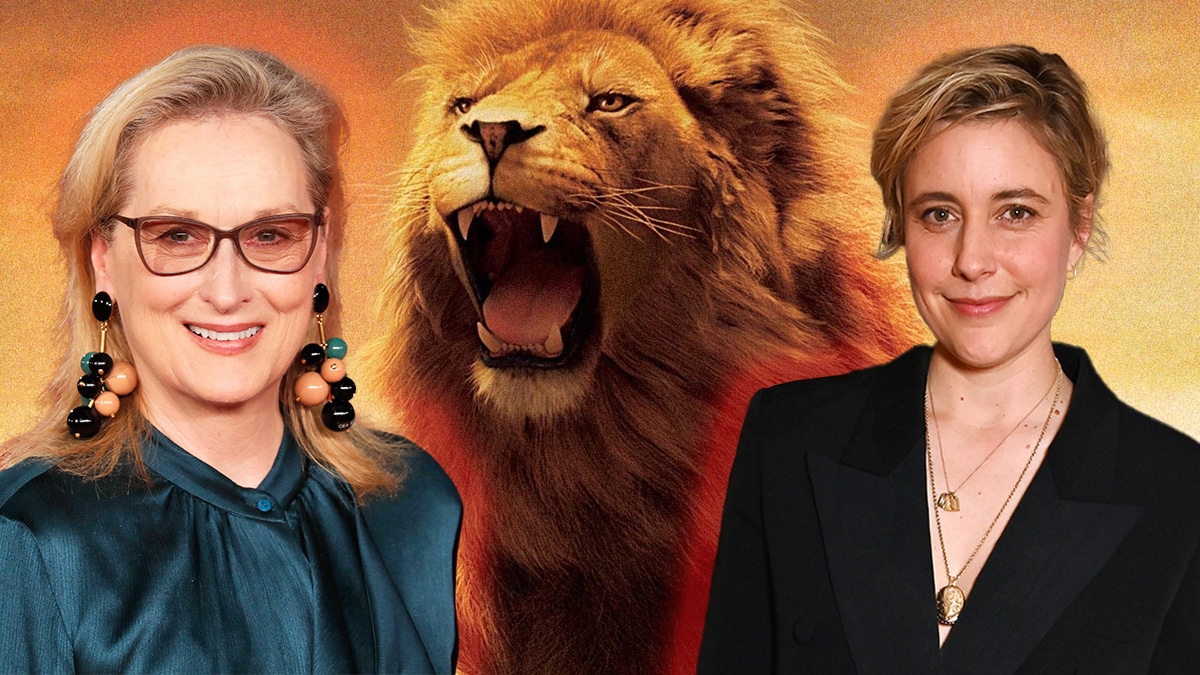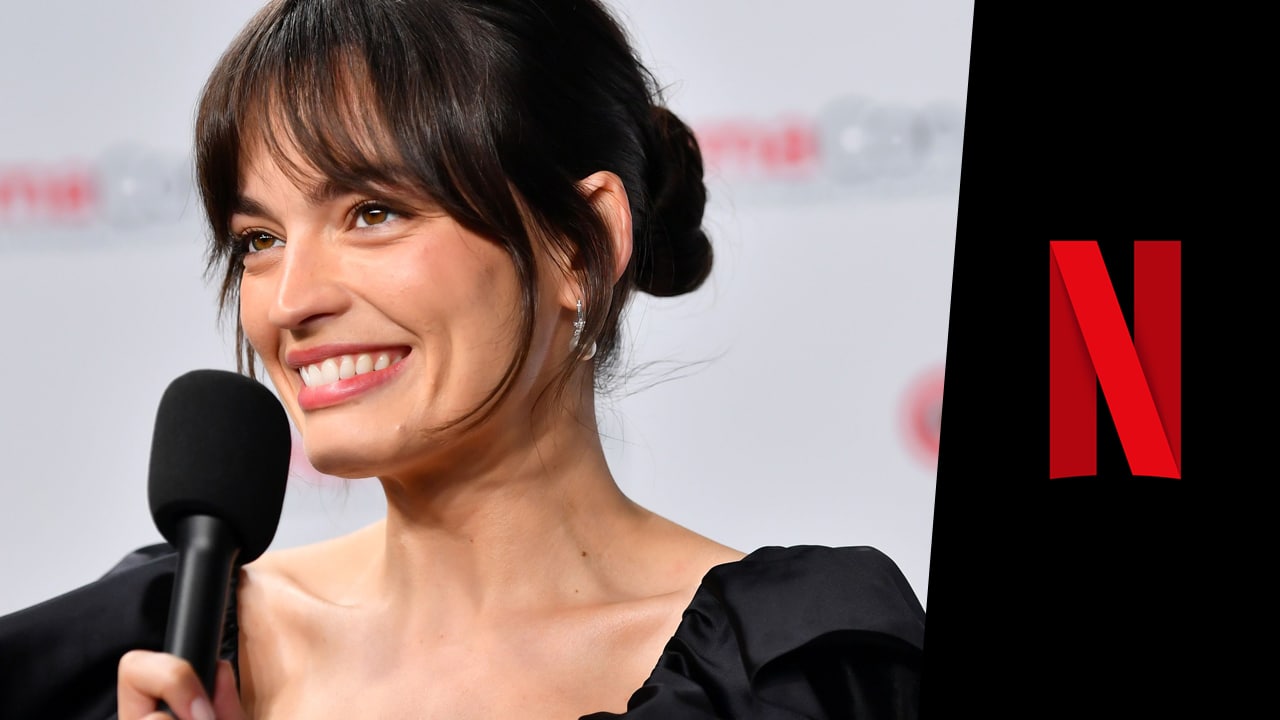
Picture Credits: Alamy / Getty Images
The story first cropped up around April 1, so few people gave it notice until Deadline confirmed the rumors. Oscar-winning writer-director Greta Gerwig, who is adapting The Chronicles of Narnia for Netflix, is “in talks” to have Meryl Streep play the pivotal role of the Great Lion Aslan.
Authored by Christian apologist C.S. Lewis, a close friend of J.R.R. Tolkien of The Lord of the Rings fame, The Chronicles of Narnia remains among the best-selling fantasy book series for grade-schoolers. In the early 2000s, a trilogy of Narnia films earned $1.5 billion in global box office.
Aslan, a divine being and the only character present in all seven Narnia novels, was written as a stand-in of sorts for Jesus Christ, though not a direct allegory.
Faithful readers of Lewis, a diverse global fanbase who tend to be evangelical or from another Christian tradition, have cried foul. “This would be a horrible decision for every possible reason,” wrote Aaron Earls at The Wardrobe Door. “Art should not be up to the popular vote, but adaptations of already existing works have to give the largest voice to the original work.”
Similarly, in an op-ed titled “Aslan Unmade,” cultural apologist and teacher Annie Crawford wrote: “To change the gender of The Lion, of The King… is to completely alter the structure and meaning of Lewis’s sacramental cosmos.”
Meanwhile, poll results from NarniaWeb show that 65% of Narnia fans are now “extremely concerned” about Netflix’s Narnia film series. The leading franchise fan site has posted contact information for producers of the film series, urging fans to share their feedback.
Other commentators have been muted or dismissive of the growing outrage.
Writer-editor Lon Harris responded, “This discourse on this is already SUPER exhausting. Aslan is not real. Aslan is not Jesus. It’s a talking animal movie for children. Calm down.” And Kat Coffin, an academic who specializes in C.S. Lewis, posted, “As long as they keep Aslan’s mane, I don’t care if Meryl Streep plays Him.”
But tens of millions of fans do care—and Narnia is perhaps the highest-profile franchise play that Netflix has ever attempted. Even the first film of the series could change the norms on how the world’s biggest streamer rolls out its movie into theaters… or doesn’t.
In an unprecedented deal, The Magician’s Nephew, a Narnia origin story set for Thanksgiving 2026 release, has secured a two-week run on IMAX screens, prior to a Christmas Day global streaming release. During a year packed with big-budget releases, it speaks to the power of both the franchise and director Gerwig.
The stakes are incredibly high for Netflix and the film’s producers. Before a single frame is shot, gender-bending Aslan risks a vocal fanbase and parade of YouTubers labeling it “going woke.”

Picture: The Chronicles of Narnia Facebook Page
Gerwing, Gordon, and the Narnia Film Team
A high-caliber team has assembled for this latest on-screen iteration of Narnia – and one cannot dismiss out-of-hand their love and interest in the source material.
Mark Gordon, a producer of classics like Saving Private Ryan and The Patriot, also had a lead production role in the thrilling adaptation of Murder On the Orient Express. Note that any new film scripts would presumably need sign-off from The C.S. Lewis Estate.
In fact, Douglas Gresham, C.S. Lewis’s stepson, who has shepherded over a dozen adaptations of Narnia in various formats, was originally listed as an executive producer of the films in 2018. However, Gresham’s health has recently been in decline, and he is now in hospice care.
Others on Netflix’s Narnia team include producer Amy Pascal, who’s made Sony’s Spider-Man films a multi-billion-dollar franchise, and Netflix Chairman of Film Dan Lin, who has spoken of his Christian faith and invested in faith-based films since joining the streamer last year.
But the most important player is acclaimed director Greta Gerwig, whose career has been based on upending norms, most notably with Barbie’s female empowerment themes. Every one of her four films to date, all of which she wrote, have earned Oscar nominations–a singular feat.
Her take on Louisa May Alcott’s Little Women, hailed as a faithful and visually resplendent adaptation, perhaps offers the best clues on how she might adapt Narnia.
Gerwig, who attended a Catholic boarding school growing up, has said she feels “reverence” for The Chronicles of Narnia, citing the series alongside Little Women as her greatest early influence.
Shouldn’t a filmmaker of this caliber be free to create the version she wants? Is it actually risky for Gerwig to cast Streep, the most Oscar-nominated actress in history, for this iconic role?
Clash of Cultural Values
The questions speak to a collision of values in modern culture, how Gerwig’s norm-busting American rebel spirit hardly gels with the Oxford professor who created Narnia.
Lewis famously wrote, “We all want progress. But progress means getting nearer to the place where you want to be . . . If you are on the wrong road, progress means doing an about-turn and walking back to the right road.”
Even in the 1940s and 50s, prior to various cultural revolutions, Lewis was viewed as a traditionalist – on Christian doctrine, on social ethics, and certainly on marriage and sexuality.
Across Lewis’ Narnia stories, Aslan is referred to as he/him. A frequent oath among denizens of the fictional lands is, “By the Lion’s mane,” and, in several stories, protagonists seek comfort by crying on Aslan’s mane. Biology reveals it’s extremely rare for a lioness to have a mane.
In the first of Lewis’ lesser-known Space Trilogy novels, Perelandra, the hero encounters angelic beings who embody the masculine and feminine, and he describes the differences.
“(Malacandra) held in his hand something like a spear, but the hands of the other (Perelandra) were open, with the palms towards him,” writes Lewis. In other passages, the novel expounds on how physical sexual attributes are only a reflection of gender differences.
Today, many cultural observers may view such ideas as archaic. Yet the characters, conflicts, aesthetics, and substance of The Chronicles of Narnia derive not only from Lewis’ fanciful take on folklore and fairy stories, but on his theology and sociology.
To discard the identity of Aslan as a male king or have a woman portray him would not be the Great Lion whom readers have known and loved for generations.
Don’t Feed the Trolls
In terms of investment, Netflix’s Narnia film series is likely to rival Prime Video’s The Lord of the Rings: Rings of Power, which will amount to about $3 billion in production and rights costs by its fifth and final season.
While opinions on the Tolkien-based TV adaptation vary, most observers agree that season one in particular made many unforced errors – emphasizing Galadriel as a vengeance-driven warrior and rewriting parts of Tolkien lore, among other issues.
Season two of The Rings of Power hewed much closer to the substance and spirit of the author’s work, most reviewers agree. Yet the damage had been done, with much lower streaming ratings in the second outing. (Having interviewed the showrunners, I hope more viewers give the series a chance.)
Trollish crit now dominates online discussion of The Rings of Power – though some of it, such as objections to ethnically diverse casting of elves and dwarves, seems misguided. But it gained traction not due to race issues, but other ways the first entry felt stripped of some meaning.
In this case, an attempt to cast Streep as the Son of the Emperor-Over-the-Sea, one of Aslan’s titles in Narnia, feels like a slap in the face to diehard franchise fans.
Perhaps the most curious aspect of this early outrage, when the film’s official title hasn’t been announced and filming will not begin until this summer, is that these talks with Streep were leaked.
Is a member of the production hoping to head off this unforced error before it happens? In the words of the Narnian warrior mouse Reepicheep: “We have nothing if not belief.”
Josh M. Shepherd, who writes about faith and culture for several media outlets including Family Theater Productions, lives in central Florida with his family.





